Dwaleni Village, home to 4,000 people in Mpumalanga, South Africa, grappled with water scarcity, compelling women and girls to walk an hour daily to contaminated wells and a dam. This struggle intensified in the dry season, leading to extended waits and health risks. Waterborne illnesses, including flu, rash, and diarrhea, were prevalent. With generous support from Sabi Sabi Game Reserve, we installed a solar water pumping system, significantly transforming lives in Dwaleni Village. Children returned to school, women cultivated gardens for food security, and families embraced better sanitation practices. Now, the community is developing, growing, and enjoying newfound opportunities. Dwaleni is a part of the Dwaleni Cluster.











Thanks to the generous donation from the Kirsh Foundation, the remote village of Mkhumbhini in Mpumalanga, South Africa, now celebrates a life-changing transformation. On March 19, 2024, the installation of a solar-water pump began delivering 3.1 liters per second of clean water daily to 24 taps across 3500 kilometers of piping, profoundly enriching the lives of 3900 residents. This project has drastically reduced the need for women and children to make perilous journeys for water, curbed waterborne illnesses, and significantly boosted education and economic opportunities. The community is now healthier, safer, and more prosperous, embarking on a brighter, flourishing future.








With heartfelt thanks to the Foschini Retail Group, the remote Hlangwane Village in Mpumalanga, South Africa, home to 3,800 people, has seen a remarkable change. As of March 22, 2024, a new solar water pump now ensures the delivery of 3.5 liters of clean water daily to 22 taps across 4149 kilometers of piping. This incredible improvement has ended the dangerous daily treks for water, significantly reduced waterborne illnesses like diarrhea, and opened new doors for education and economic growth. The health and safety of the villagers have seen a profound positive shift, allowing Hlangwane to thrive and look forward to a prosperous future.











In Kwazulu-Natal, South Africa, Vilakazi Village, home to 4,500 residents, was confronted with a severe water crisis. This dire situation forced women and girls to embark on long journeys multiple times daily to reach a contaminated water source shared with animals. The situation worsened during the dry season, resulting in extended waiting times and the desperate search for alternative water sources. Unfortunately, this contaminated water led to a rise in waterborne illnesses, manifesting as headaches, stomachaches, and skin rashes. However, hope arrived on March 31, 2023, as the Kirsh Foundation’s generous support enabled us to install a solar water pumping system in Vilakazi Village. This intervention marked a pivotal moment for the community, which is now experiencing growth, development, and expanded opportunities. Vilakazi Village is part of a larger cluster that includes Vilakazi D12 and Zone 14.



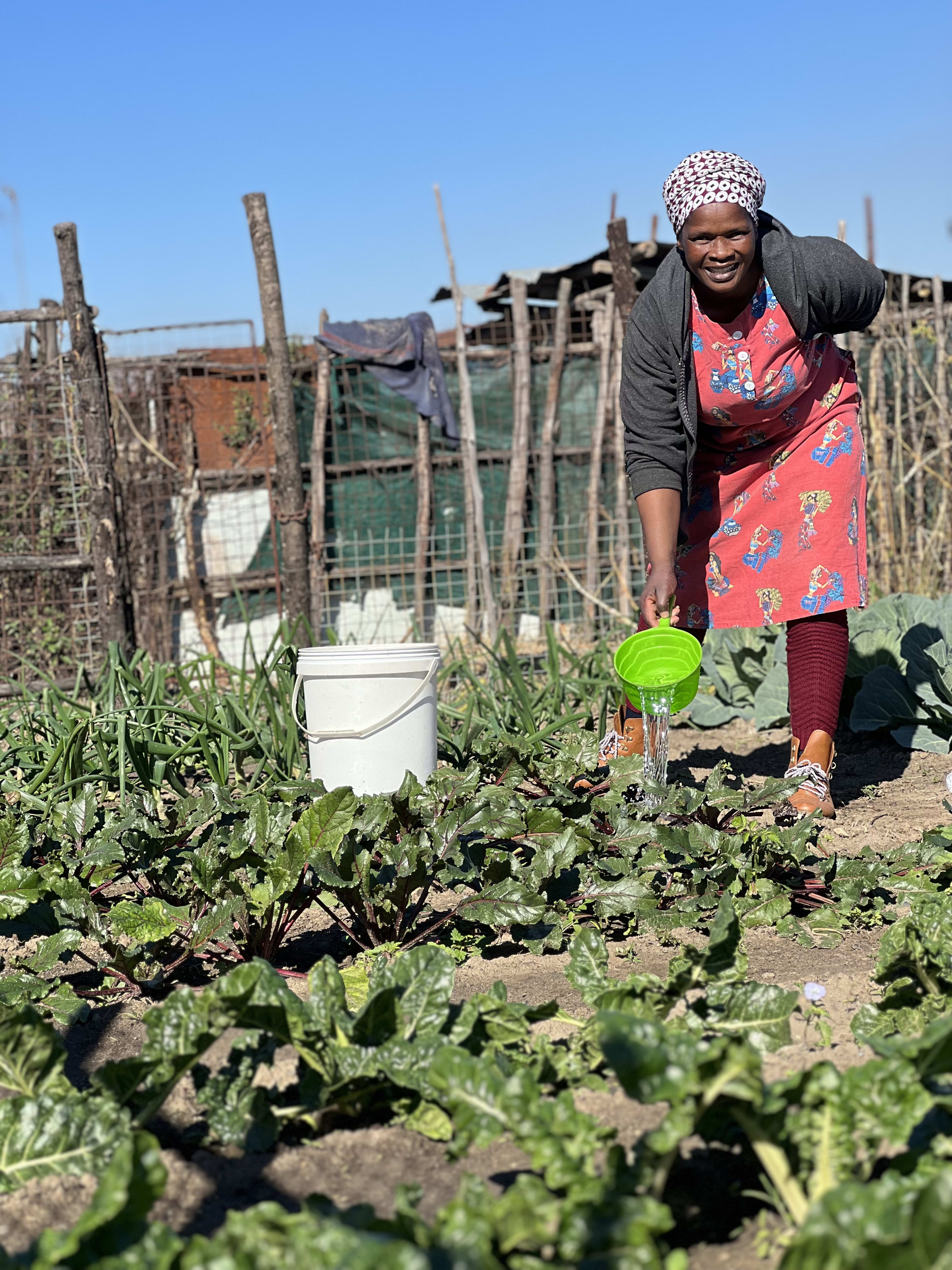
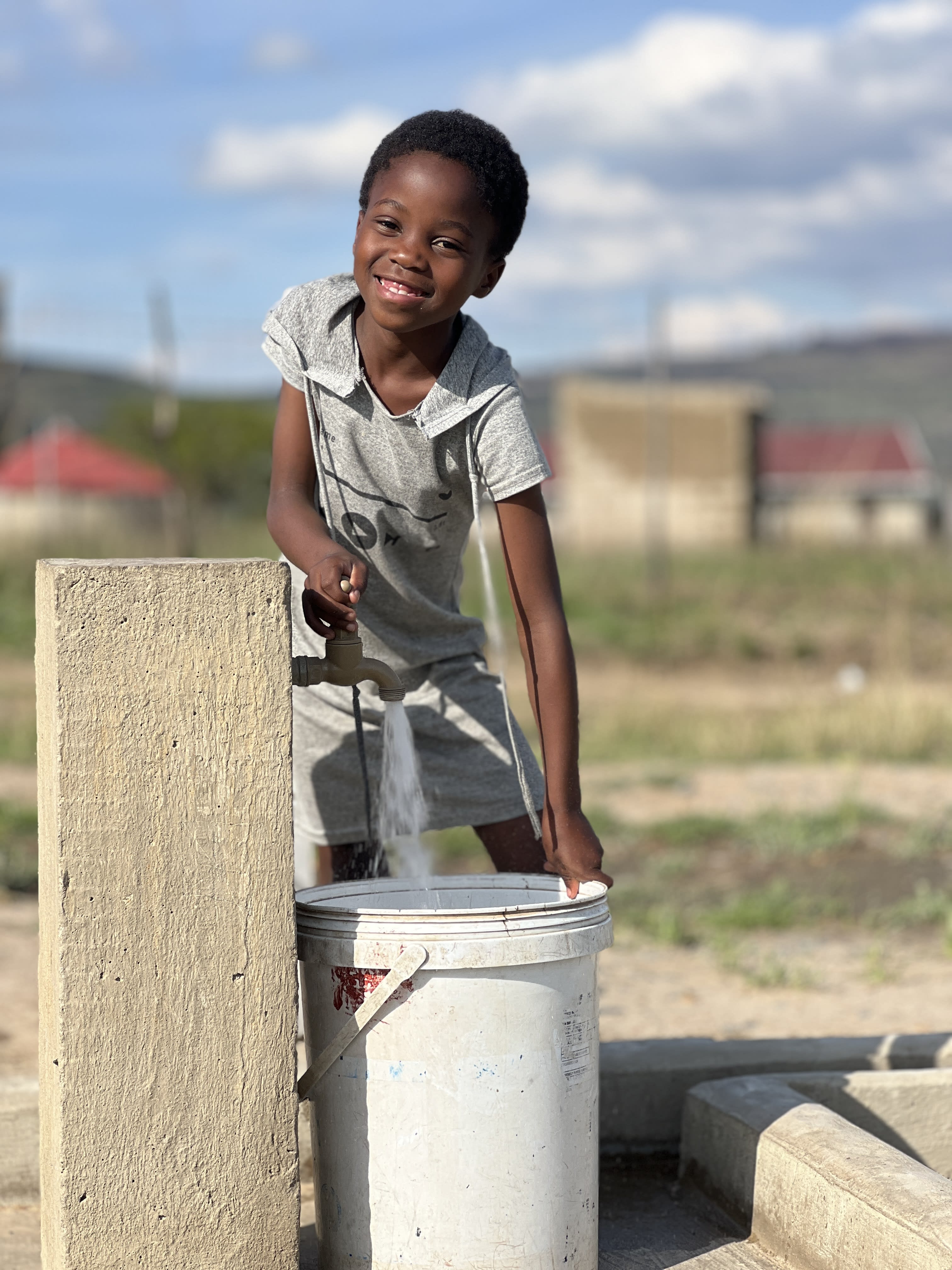




Manyone Village, home to 4,045 people in Kwazulu-Natal, South Africa, faced a critical water shortage, compelling women and girls to walk over 15 kilometers each direction to collect water from a contaminated water source. The challenges intensified during the dry season when the water source ran dry, leading to prolonged waits or the search for alternative sources. Consuming water from these sources resulted in waterborne illnesses, including headaches, body rash, and stomachaches. With generous support from the Victor Daitz Foundation on January 18, 2023, we installed a solar water pumping system in Manyone Village, significantly improving the lives of its residents. The remarkable system channels 86,000 liters through 4286 kilometers of pipes reaching 11 taps and now, this intervention facilitated the return of children to school, empowered women to cultivate gardens for food security and safe cooking, and encouraged families to adopt better hand hygiene and general sanitation practices. Now, the community is experiencing development, growth, and increased opportunities.














In the village of Matshemhlophe, located in Kwazulu-Natal district in South Africa, 4000 residents once faced a major water crisis. The community members relied on and consumed unsafe water. Women and girls had to walk long distances daily to fetch water, leading to waterborne diseases and insufficient water for daily needs like bathing, cooking, washing and growing their own crops. On November 14, 2023, thanks to a donation from Raging River Trading, Matshemhlophe Village celebrated the installation of a solar water pump. Every day, the system delivers 86,000 liters of clean water to 20 taps via 2270 kilometers of piping. This development has positively impacted education, economic progress, and the villagers’ health. Matshemhlophe Village is now flourishing, demonstrating the transformative power of clean water.


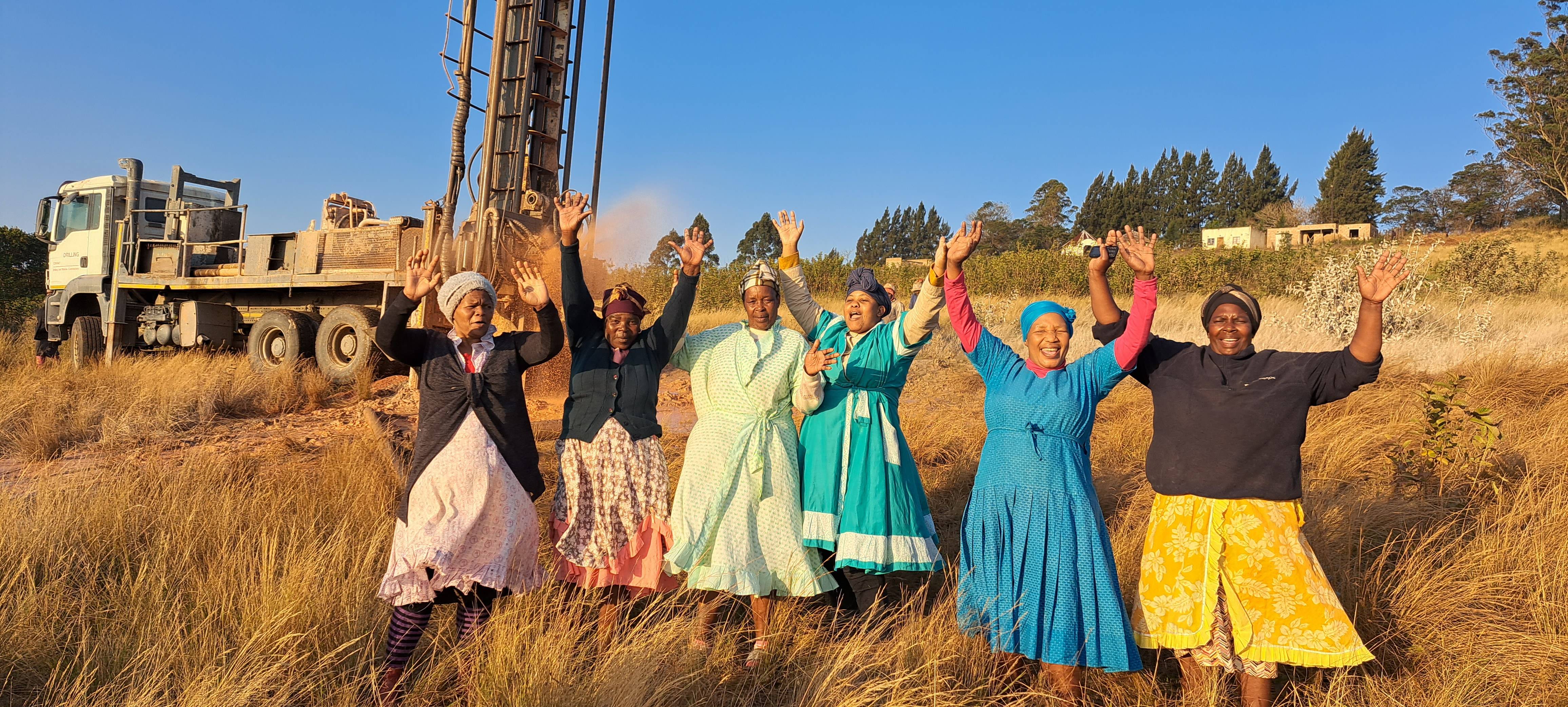





Qhoqhoqho Village, located remotely in Kwazulu-Natal, South Africa, with a population of 3,500 people, was facing a critical water crisis. Women and young girls endured multiple long-distance walks each day to fetch water from a contaminated open source which they shared with animals. The journey to the water source was often dangerous as women faced the risk of being attacked by criminals or snakes. The contaminated water was causing waterborne illnesses, including diarrhea and skin rashes, affecting both children and adults, resulting in high levels of unemployment amongst the community. Thanks to the generosity of HCI Foundation, we were able to install a solar-powered water system on July 2023, to cater to both Qhoqhoqho community and it’s neighboring village, Ezitobhini, who’s community faced similar challenges. Access to clean water will undoubtedly improve the lives and health of these two grateful communities for the better in the years to come.




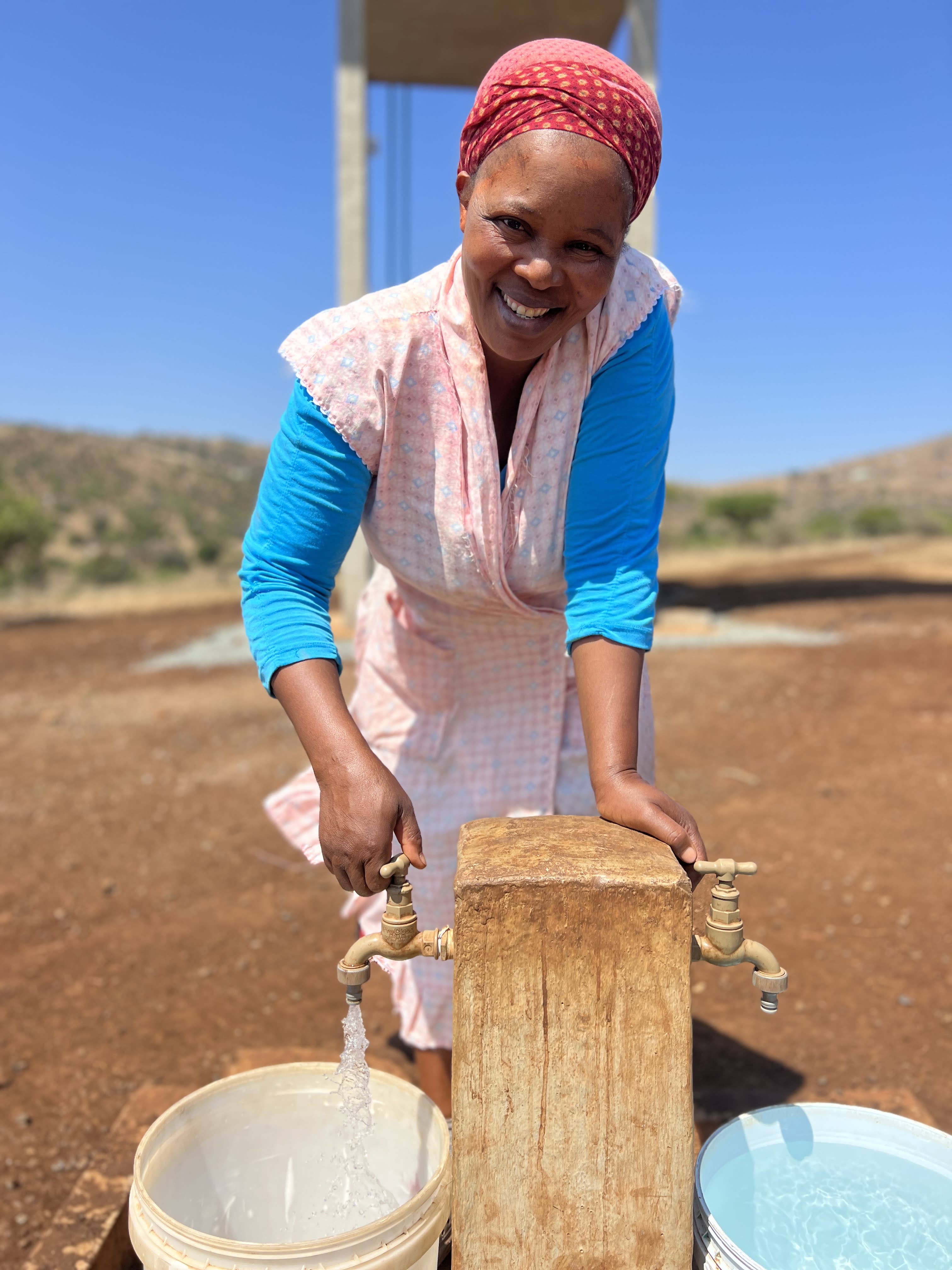

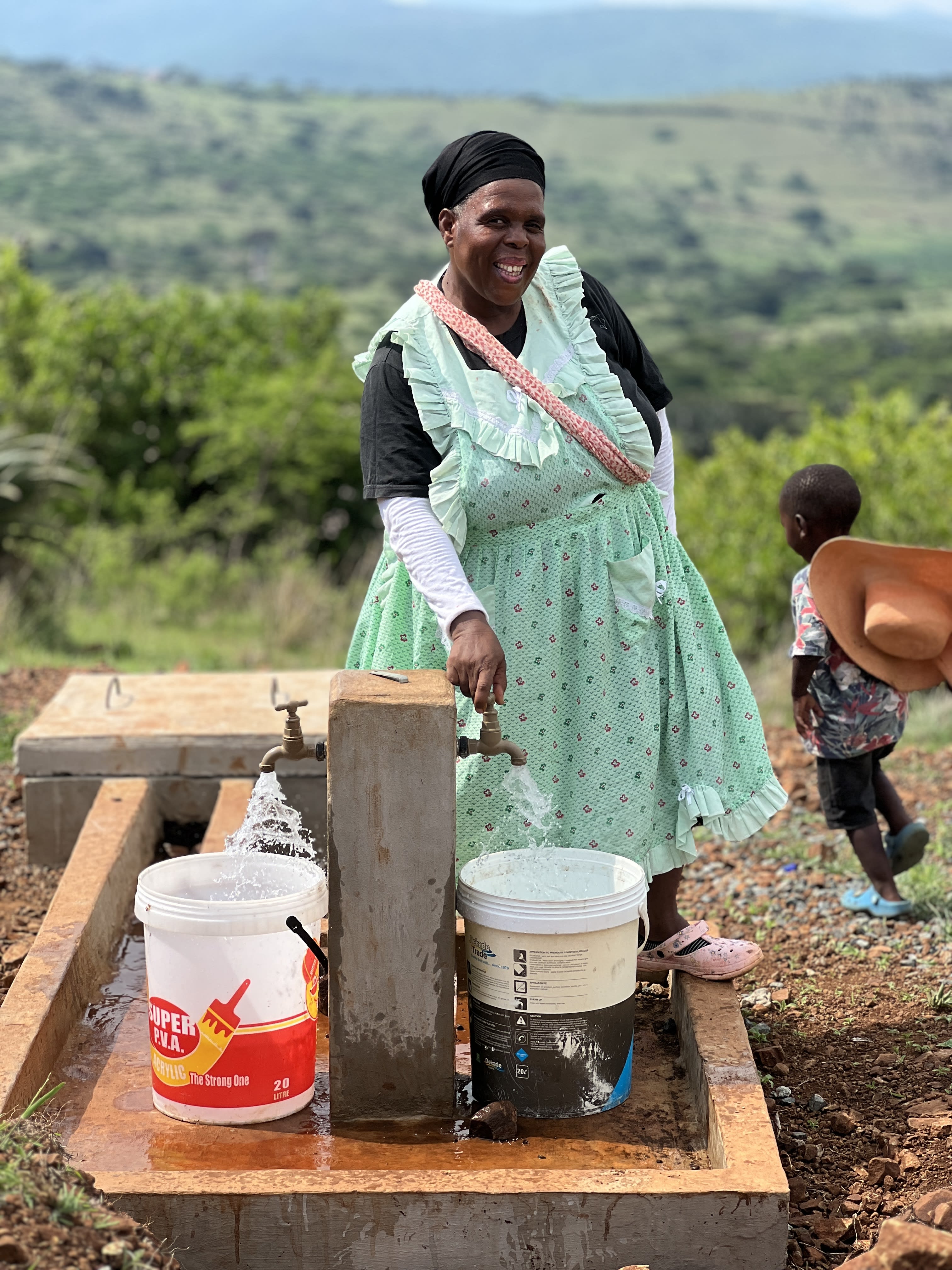







Clones Farm Village, home to 3,800 people, is remotely located in Kwazulu-Natal, South Africa. For years, this community grappled with the absence of clean water. Daily life was a relentless struggle; women and young girls would journey to fetch water from a contaminated open source. In the dry season, the open source would run dry, and they would have to wait for the source to replenish or spend their day in desperate search of alternative water sources, exposing them to further danger. They suffered from drinking dirty water, manifesting a variety of waterborne illnesses such as headaches, rashes, and stomach ailments. However, hope dawned on Clones Farm Village on February 12, 2023, when the generous Heneck Family, in collaboration with Innovation: Africa, facilitated the installation of a transformative solar water pumping system. Since then, the ripple effects of this intervention have been profound. Children, once burdened with the task of collecting water, have returned to school, eager to pursue an education. Women, have begun cultivating vibrant gardens, not only ensuring food security but also fostering a newfound sense of empowerment. With access to clean water for hygiene and cooking, families now have a different standard of living. Today, Clones Farm Village stands as a testament to resilience and progress, thanks to the transformative power of clean water, Clones Farm Village is not merely surviving; it is flourishing, embodying the promise of a brighter tomorrow.












Ehlangwini Village, a community of 3,900 people in the remote landscapes of Kwazulu-Natal, South Africa, grappled with a critical water shortage. Women and young girls had to endure daily 15km walks to collect water from two contaminated open sources. The challenges intensified during the dry season, leading to prolonged waits or the search for alternative water sources. Consuming water from these sources resulted in waterborne illnesses, including stomachaches, body rash, and elzimas. With the generous support from Raymond James, Innovation: Africa implemented a transformative solution—a solar water pumping system in Ehlangwini Village. This intervention significantly improved the lives of its residents, enabling children to return to school, empowering women to cultivate gardens for food security and safe cooking, and encouraging families to adopt better hand hygiene and general sanitation practices. Now, the community is witnessing development, growth, and increased opportunities.









Cwakeme Village is home to 4,500 people and remotely located in Kwazulu-Natal, South Africa. The villagers were living for a long while with no access to clean water, walking long distances every day to fetch water from a contaminated open source, shared by animals such as donkeys, cows, goats and others. Before innovation: Africa intervened, HCI Foundation had generously provided a borehole with a diesel powered pump, however the community was having difficulties accessing and maintaining the borehole. Seeing these challenges, HCI partnered with innovation: Africa in May 2022, to install a sustainable solar-powered water system and thus provide plenty of clean water to the community at large. Thanks to the generosity of HCI Foundation, we have seen significant improvement in the lives of Cwakeme Village’s population.









Subscribe to our mailing list